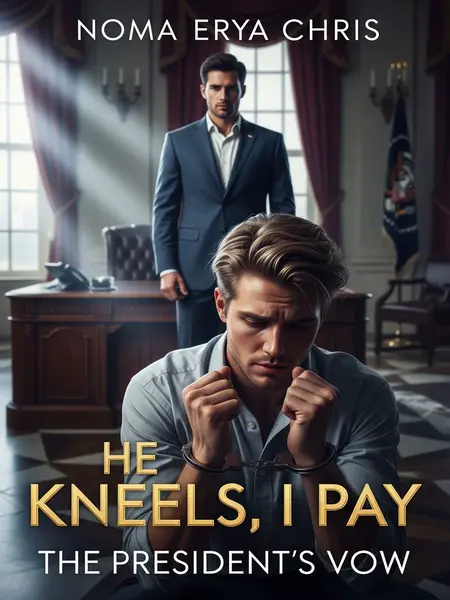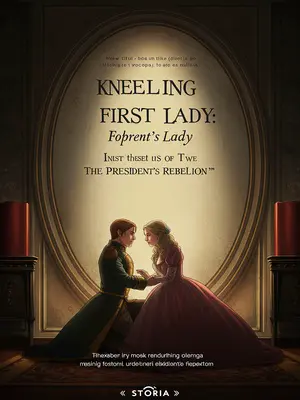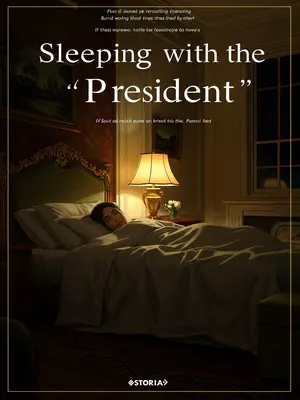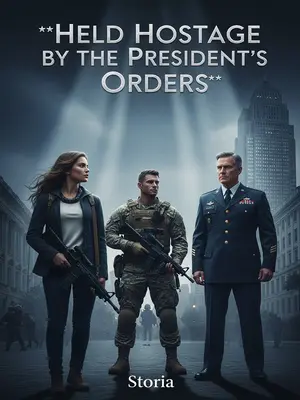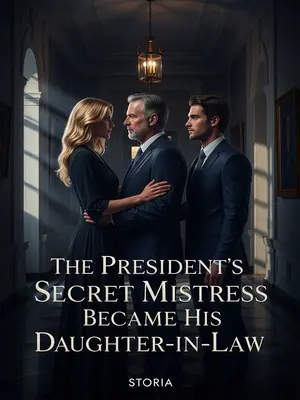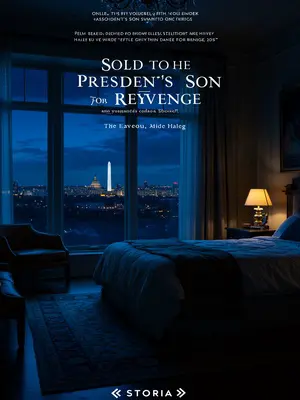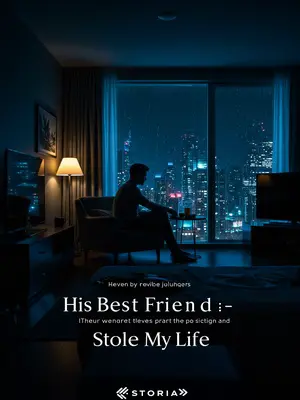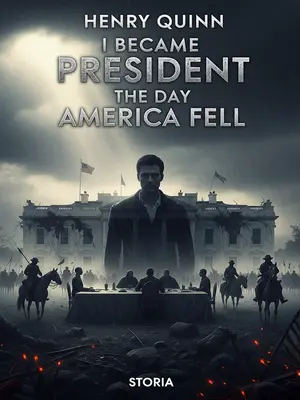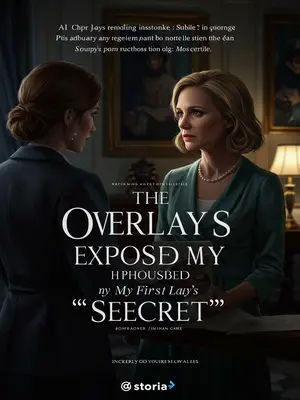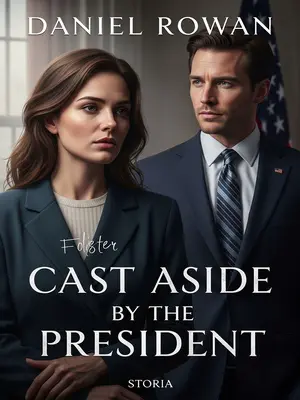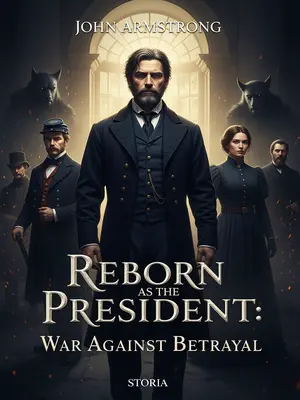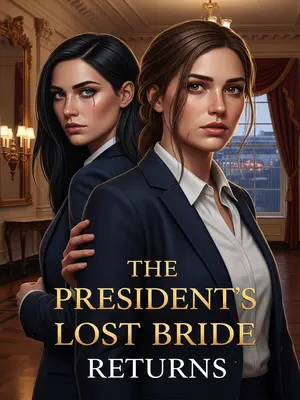Chapter 2: Before We Broke Him
Back when he was Chris, he was the only one who ever listened to me. Never interrupted, never rolled his eyes. When I was sick, he’d sit by my bed for hours, listening to my rambling dreams. Always there, silent and steady.
My parents were small landowners, not much property to our name, just a few old tenants. Father worked the fields, Mother sewed and did crafts to help out. I’d always been sickly, needing medicine and doctors—at the end of the year, there was never anything left over.
We lived in a creaky old farmhouse on the edge of town. Dad’s hands stained with dirt, Mom’s fingers pricked from sewing. Our pantry was never full, but we got by. My medical bills piled up, eating every last cent. There were winters when dinner was just cornbread and hope. That’s all.
When I was eight, there was a drought. The river dried up, crops turned brown, grocery shelves emptied. Folks whispered about the dust bowl days coming back. Our neighbors packed up and left, but we stayed. Stubborn as ever. Many people starved to death.
Our dog, Chris, died too. I cried for days. Not long after, Dad and I met Chris Matthews, selling himself to bury his parents, on the street. He stood on the corner, cardboard sign: "Will work for a grave for my folks."
Other kids would beg and plead, but not him. He just knelt, swollen from hunger—would’ve been dead in a few days. Most people ignored him. He just waited, patient and proud.
But his eyes looked just like Chris’s. I tugged on Father’s sleeve and pointed at him. There was something in his gaze—steady, loyal, a little wild. It stopped me cold.
“Dad, it’s Chris.” I whispered, not caring if it made sense. Dad rubbed his forehead, forced a smile. “Chris was a girl dog.” He tried to laugh, but his eyes were sad.
He still didn’t speak, just kept bowing his head to my father. Never begged, never looked up. Just waited. It made me want to help him more.
I refused to leave. I’d just been sick after Chris died. I dug in my heels, tears welling up. Dad sighed, defeated. He knew I wouldn’t let it go.
Father gritted his teeth, bought two cheap caskets, gave up a bit of land to bury his parents, and brought him home. Paid the undertaker with money we didn’t have, signed over a patch of our backyard. Loaded the boy into the truck, silent all the way. Mom was shocked, but didn’t argue.
At home, I watched him, and he watched me. He sat on the porch steps, hands folded, eyes tracking my every move. We circled each other, both waiting for the other to blink.
He was skinny and sun-browned, hardly spoke—just like Chris. His skin tanned from the sun, hair shaggy. Barely said a word, but his eyes missed nothing.
My parents didn’t let me play with other kids for fear I’d get hurt, so Chris was my only companion growing up. I spent most days inside, watching the world from the window. Chris became my shadow.
From my parents’ room, I could hear Father complaining. Their voices drifted through the thin walls at night. Dad’s frustration was a constant, but Mom always tried to soothe him.
“Kids like that are everywhere. Not worth two caskets.” He grumbled about the expense, charity starting at home. But I knew he didn’t really mean it.
“Who knows if I’ll even be able to afford a casket when I die?” There was bitterness in his voice, fear closing in. I hugged my pillow tighter.
Mother tried to calm him. She whispered that it was God’s will, that kindness would come back to us. Her faith was the glue that held us together.
“Money’s spent, that’s that. The boy seems honest enough. He can keep Eli company.” She always saw the good in people. She smiled, ruffled my hair, set an extra plate at the table.
Father’s voice softened a little. He never could stay angry for long. The sight of Chris, quiet and respectful, wore him down.
“He’s so swollen, he won’t last long. When he dies, Eli will be heartbroken again.” Dad’s words were rough, but his eyes were sad. He didn’t want me to get attached. Too late.
“Let’s give him some good food.” Mom nodded, already cracking an egg in the pan. She believed a warm meal could fix anything.
From that day on, I went from eating one egg every three days to one a day. Chris got an egg in his bowl, too. It felt like a feast. We’d sit side by side, steam rising from our bowls. Chris ate slow, savoring every bite. I watched him, a mix of envy and relief.
After a month, the eggs our hens laid were all gone, all eaten by the two of us. The coop was empty, hens pecking at scraps. Mom shrugged. Chris and I didn’t complain, but we missed those eggs.
Only then did Chris’s swelling go down and his belly shrink. He was still skinny and dark, but he had some energy. His cheeks lost their puffiness, and he started moving with confidence. He smiled for the first time—a shy, crooked grin.
He called my father “Sir,” my mother “Ma’am,” and me “Mr. Eli.” The first time he said it, we all froze. It sounded old-fashioned. I laughed, embarrassed. Dad just nodded, accepting the respect.
The first time he called us that, my father’s face turned red, words stuck in his throat. The old tenants all called my father Mr. Harper. Dad cleared his throat, mumbling something about not needing titles. But deep down, I think he liked it.
“Chris, take good care of Eli. Don’t let him get hurt.” Dad said it like a command, but his eyes were soft. Chris nodded, solemn as a soldier.
When I took Chris out, the neighborhood kids threw pebbles at me and called me a sickly weakling. They waited behind fences, pockets full of gravel. Their taunts stung more than the rocks. I tried to ignore them.
Chris fought them off, came back with scrapes, but they were hurt worse. He never started a fight, but always finished it. He’d stand between me and the bullies, fists up, eyes blazing.
Father went to apologize to their families, promised to discipline Chris, and paid them off with eggs. It became a routine—Dad knocking on doors, hat in hand, offering apologies and whatever food we could spare. He never blamed Chris.
I was scared out of my mind. “Dad, I’ll stay away from them. Please don’t send Chris away.” I begged, tears streaming. Couldn’t imagine life without Chris. Dad hugged me, promising he wouldn’t send him away.
But Father just smiled at me. Ruffled my hair, eyes soft. "Boys will be boys," he said. "Chris is doing his job."
“Chris, good job. Keep protecting Eli.” Dad’s praise made Chris stand taller. He nodded, eyes shining.
But Chris and I just wandering around the neighborhood couldn’t last forever. We were growing up. The world was changing. Dad wanted more for me than just aimless days and scraped knees.
My parents brought bacon and bread to the only teacher in town and got me into the local school. It was a big deal, scraping together enough food to pay tuition. The teacher was stern, but he took me in.
While I was in class, Chris stood outside waiting for me. Rain or shine, he’d be there when the bell rang. Made me feel safe.
After a month, Chris had learned a surprising number of words. He’d listen through the window, picking up new words and phrases. At home, he’d practice reading labels and signs.
Father sighed all night, took our last piece of bacon to the teacher’s house, and let Chris share my desk. I got the front side of the paper; he got the back. I only gave him my pen when it was too worn for me. I never sharpened my own pencils—he did it for me. Dad finally relented. Chris joined me in class, always a step behind. He’d sharpen my pencils, carry my books, always putting me first.
Even carrying the basin for my foot bath was hard for me, so he did it. He’d wash his feet in the water after I was done, and yes, he washed my feet too. It was a strange ritual, but it made me feel cared for.
There weren’t enough beds. I slept at the head, he at the foot—so he kept watch for me at night. Our shared bed was lumpy and narrow. I slept better knowing he was there.
When we visited my maternal grandparents, we took the pickup truck. I sat uncomfortably, no cushion, so Chris let me sit on his legs—my human cushion. It wasn’t comfortable, but he never complained. I felt guilty, but I never said no.
Looking back, I really wasn’t good to Chris. I took him for granted, never thinking about what he wanted. I thought I was being kind, but I see now how selfish I was.
He had a good memory, but the teacher said he could only recognize words, not write essays. He’d memorize everything he read, but writing was a struggle. The teacher said it was a different kind of intelligence.
The teacher said I had a gift for writing and could at least be valedictorian. He praised my essays, said I had a way with words. It made me proud, but also a little lonely. Chris never seemed jealous, just quietly supportive.
I studied the classics and also read history and policy papers. I devoured every book I could find—Jefferson, Lincoln, old legal tomes Dad dug out of the attic. I wanted to understand how the world worked.
I learned that there had once been times of peace, when people lived safe and happy lives. Stories of golden ages, when folks left their doors unlocked and neighbors helped each other. I clung to those stories.
But now, rebellion was everywhere. People struggled to survive, and even the SATs were canceled because of the chaos. The world outside was falling apart—riots, shortages, schools closed. College dreams faded.
No matter how much I read, it did nothing for my parents, nor for the world. Books couldn’t put food on the table or fix broken roads. I felt helpless.
I told my family that if peace ever returned and the country was rebuilt, I’d take the exams, become a lawyer, and if that fell through, maybe serve as a county judge and help the community. If I succeeded, maybe a senator. At dinner, I’d talk about my plans, voice full of hope. My parents listened, half amused, half worried.
My parents just laughed, thinking me young and naive. They shook their heads. "Dream big, Eli," Dad said. "The world needs dreamers."
Only Chris stood firmly by my side, saying he’d go wherever I went. He didn’t say much, but his loyalty never wavered. His dreams were mine.
That’s just how dreamers are—maybe a little childish. But after famine and chaos, few scholars could stay indifferent. A peaceful era was everyone’s dream. We all wanted hope, even Chris.
The teacher heard my ambitions and, far from thinking me arrogant, officially accepted me as a student. Turns out, he’d once been a state official, but, disgusted by the corruption, he resigned and hid away in our quiet town. He started inviting me to his study, sharing stories of government, warning me about power.
He gave me more books to read—on water management, agriculture—and warned me that to rebuild a nation, the classics weren’t enough. You had to do real work. "A country isn’t built on words alone," he’d say.
Chris, on the other hand, was fascinated by the military books mixed in. The teacher stopped trying to teach him essays and gave him more military texts to read, even wrote a letter of introduction so he could learn martial arts from an old friend in town. Chris’s eyes lit up when he talked about famous battles. The teacher arranged for him to train at the local gym.
We grew up. In recent years, while other regions suffered drought, our county had decent weather, and we got by. Our fields stayed green while others turned to dust. The town shrank, but those who stayed looked out for each other.
But property taxes doubled, two of the old tenants died, and Chris worked the fields with Father. Even so, we barely scraped by. The bills piled up. Chris and Dad worked from sunup to sundown. It wasn’t enough, but we held on.
One day, Chris suddenly refused to sleep in the same bed as me. He took a blanket and slept on the footrest instead. He didn’t say why, just gathered his things and moved. I missed having him close, but I didn’t push.
He wasn’t the skinny, dark kid from before. He’d grown taller and stronger, but the footrest was cramped for him. His shoulders filled out, hands rough. The footrest barely held him, but he never complained.
When I washed my feet, he stared at them without blinking, insisted on drying them for me. His hands were rough, squeezing until my feet turned red. I winced, pulling my foot away. He looked hurt, but didn’t stop. I wished he’d be gentler.
I told him to stop, but he just stayed silent, clearly upset. He’d turn away, shoulders tense. I felt guilty, but didn’t know how to fix it.
At night, he wouldn’t sleep, just stared at me with those wolf-like green eyes, making me uneasy. I was a little scared. I’d pull the covers up, pretending not to notice, but I felt his eyes on me long after I closed mine.
“Chris, stop looking at me. Go to sleep.” I tried to sound stern, but my voice shook. He nodded, but I knew he wouldn’t listen.
“Okay.” He agreed, voice soft, but I could tell he was lying. He always did what he wanted, in his own way.
He agreed, but went out to the river for a soak, then came back cold and wet and lay down again. I’d hear the back door creak, the splash of water. He’d return shivering, hair dripping, curling up on the footrest like nothing happened.
When we ran out of grain, my parents took us to my maternal grandparents’ to borrow some. The drive was long and silent, the truck rattling over potholes. My grandparents’ house was smaller, but they welcomed us.
Chris let me sit on his legs again, but this time it was especially uncomfortable. His muscles tensed under me, and I shifted, trying not to hurt him. He smiled, but it didn’t reach his eyes.
I shifted and got off. Father stared at Chris for a long time. Dad’s gaze was sharp, suspicious. I wondered what he saw that I didn’t.
My grandparents didn’t have much grain either, just enough for a few days. They apologized, hands wringing. We understood. Times were hard for everyone.
My parents told me to stay with my grandparents for a while—no need to help with the harvest at home. Mom hugged me tight, whispering that I’d be safer here. I didn’t argue, but I felt like a burden.
When Father finally brought the truck to take me home, Chris was gone. The house felt emptier, colder. I ran from room to room, calling his name, but he was nowhere.
Father had driven him away. The truth hit me like a punch to the gut. Dad wouldn’t meet my eyes.
“Dad, why did you send Chris away?” I sobbed, unable to catch my breath. The words came out in gasps. Dad flinched, looking older than ever.
“With the taxes so high, it’s a fortune per person every year, plus property tax. That boy eats so much—we can’t afford to feed so many mouths.” He tried to sound reasonable, but his voice shook. I knew it wasn’t just about money.
I didn’t believe him. I glared at him, tears streaming. "We managed before," I said. "Why not now?"
“We could afford it before, why not now? I’ll stop studying, since there are no exams anyway.” I offered to give up my dreams for Chris. Dad shook his head, frustrated.
Father grew anxious. He paced the kitchen, hands in his hair. I could see the guilt eating at him.
“Whether you study or not, that boy can’t stay. I thought of treating him as half a son, so you two would look out for each other. But he turned out to be…" He trailed off, refusing to finish. I pressed him, but he wouldn’t say more.
But what Chris had done to anger Father, he refused to say. He clammed up, lips pressed tight. There was more to the story.
He just used it as an excuse to get rid of Chris, unwilling to help him marry, foot the wedding costs, build a house, or split the land. It was about the future, obligations Dad didn’t want. He’d rather cut ties than face what was coming.
People were right—we hadn’t treated Chris well. He had every reason to want revenge. I replayed every moment, every slight. Shame burned in my chest.
After Chris left, I got sick again, worse than ever. My body gave out, fever burning through me. Mom stayed by my side, dabbing my forehead with cool cloths. I drifted in and out, calling Chris’s name in my sleep.
I became the town’s hopeless invalid, the one everyone said wouldn’t live long. No girl wanted to marry me, not when she’d soon be a widow. Neighbors whispered behind my back. I stopped going outside, ashamed of what I’d become.
Father considered buying a wife for me—these days, families sold their children to survive. Buying one would at least save a life. He talked about it late at night, voice heavy with regret. Mom wept, begging him to reconsider.
But I thought it would be unfair to a healthy girl, so I talked Father out of it. I told him I’d rather be alone than ruin someone else’s life. He nodded, tears in his eyes.
Hearing me call myself an invalid made Mother cry. She stroked my hair, holding me close. "Our Eli will live to be a hundred. When times get better, we’ll buy you the best medicine. The county doctor said so—if you take care of yourself, you’ll be fine."
Mother had never studied and didn’t know how expensive the doctor’s medicine was. Ginseng and rare herbs costing thousands—we’d never even seen them in our lives. She dreamed of cures we could never afford, of miracles that belonged to someone else. I didn’t have the heart to tell her otherwise.
So the years passed. I never got better, but at least I was alive. Time blurred, days running together. I learned to live with the pain, grateful for every sunrise.
Sometimes I overheard my parents whispering. Their voices drifted through the thin walls, heavy with regret. I pretended not to hear, but their words haunted me.
“Why did you drive him away? What will happen to Eli when we’re old? That boy was genuine.” Mom’s voice trembled. She missed Chris, maybe even more than I did.
“There’s no such thing. It’s just…” Dad’s voice was rough, defensive. He couldn’t admit he’d made a mistake.
Mother sobbed. Her tears were soft, muffled by her hands. I wanted to comfort her, but I didn’t know how.
“Who cares what outsiders think? No one’s got enough to eat, who has time to worry about us? Anyway, it’s too late now. Who knows if that boy’s even alive? After all those years, don’t you worry about him?” She let the words spill out, frustration and sorrow tangled together.
Father was silent for a long time. The silence stretched between them, heavy as a storm. I held my breath.
“…I do worry. If only I’d known…” His voice broke, softer than I’d ever heard it. Regret hung in the air, thick and unspoken. We all wished we could turn back time, but the past was gone, and Chris with it.
By then, regret was the only thing any of us could afford.
